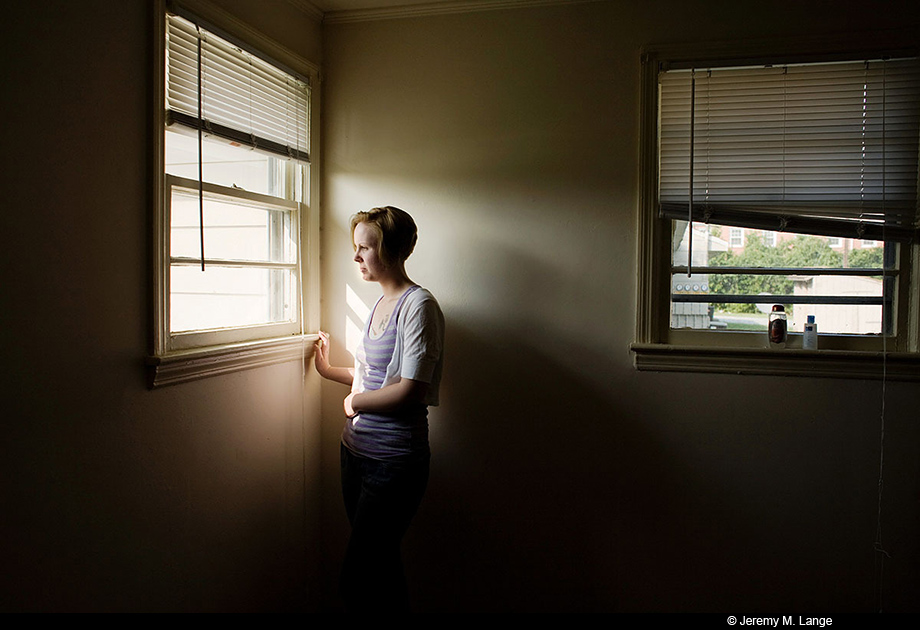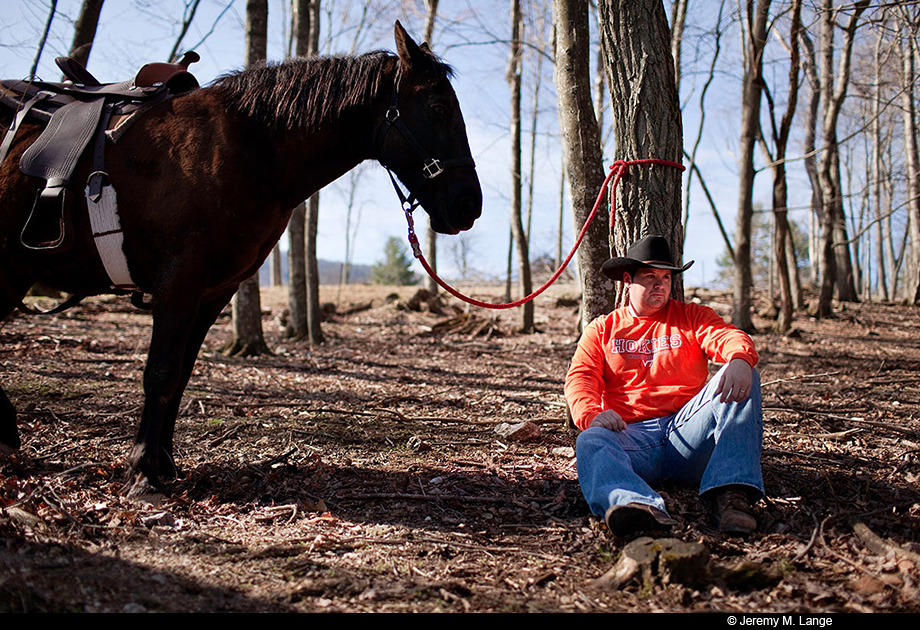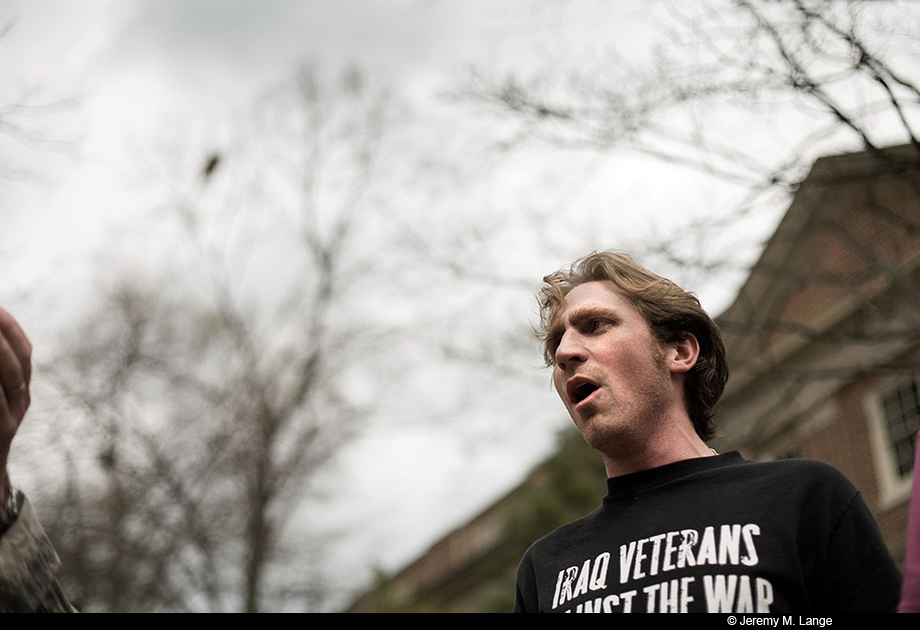Notes
Jeremy Lange's "War At Home": Individual Wars
The fourth post of Jeremy Lange’s War At Home series:
Jeremy was on assignment for The New York Times in 2007 when he photographed Marine Corporal April Ponce De Leon, then twenty-two years old, in Jacksonville, North Carolina. She was about to be deployed to Iraq in two weeks. What made her story different from most of her comrades was that, after previously believing in humanitarian intervention, her thinking evolved and she began to see the American presence in Iraq as an occupation. No longer supporting the war effort, she was still in uniform, and still obligated and willing to serve.
Speaking to Jeremy, he told me that although Corporal Ponce De Leon was not the only soldier he met who felt this way, it was impossible to convince others to be on the record and photographed. Not surprising, but it speaks volumes to the nuanced and individual experiences that are each participant’s war.
Jeremy wrote about James Agee, above, who he photographed March 31 this spring, in Bland, Virginia: “After two tours in Iraq, he was diagnosed with PTSD and traumatic brain injury and was moved to the Warrior Transition Unit (WTU) at Fort Carson in Colorado Springs, for assistance with his discharge from the Army. At the unit he was shocked by the treatment of the returning soldiers by members of the unit who were supposed to be helping them. He now lives in Virginia spending time on his grandfather’s farm before returning to college in the fall.”
Elaborating, Jeremy described how Agee felt that he was being abused by people who had not been there, not been in combat, yet acted as if they knew better than the veterans. From my own experience, that’s about right. It is very hard, when returning from harrowing and peak experiences, to be told what to do or what to think by outsiders.
“Joe Gill, a member of Iraq Veterans Against the War who served two years in the Army, including six months in Iraq, sings at a protest against the war in Iraq in Chapel Hill, North Carolina, on March 19, 2008. He now lectures and speaks out against the war.”
These are distinct responses beyond the bombast and nationalist rhetoric.
–Alan Chin
PHOTOGRAPHS by JEREMY LANGE





Reactions
Comments Powered by Disqus